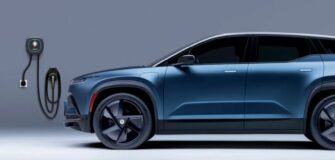Shaping the Road Ahead: Automotive Industry Trends and Future Developments

The automotive industry is in the midst of a transformative era, driven by technological advancements, changing consumer preferences, and a growing emphasis on sustainability. As we look to the future, several key trends are shaping the direction of the automotive landscape. Here are the latest developments that are poised to define the industry in the years to come:
1. Electric Revolution:
The shift toward electric vehicles (EVs) is one of the most significant trends in the automotive industry. Governments around the world are implementing stricter emissions regulations, prompting major automakers to invest heavily in EV technology. From compact cars to SUVs and even trucks, electric options are expanding across vehicle segments. The development of advanced batteries, increased charging infrastructure, and longer driving ranges are driving the EV revolution forward.
2. Autonomous Driving:
The race towards autonomous vehicles continues, with rapid advancements in self-driving technology. Automakers and tech giants are investing in sensors, artificial intelligence, and machine learning to achieve higher levels of automation. While fully autonomous vehicles are still on the horizon, features like adaptive cruise control, lane-keeping assistance, and automated parking are becoming commonplace in modern cars.
3. Connectivity and IoT Integration:
Modern vehicles are evolving into sophisticated connected devices. The integration of Internet of Things (IoT) technology allows vehicles to communicate with each other, infrastructure, and even smart devices in our homes. This connectivity enhances safety, navigation, and entertainment experiences. From real-time traffic updates to remote vehicle diagnostics, the possibilities for enhancing the driver experience are endless.
4. Shared Mobility and Car Subscription Services:
Traditional car ownership models are facing competition from shared mobility solutions and car subscription services. Younger generations, in particular, are showing a preference for access over ownership. Ride-sharing, carpooling, and subscription-based models are gaining traction as urbanization and environmental concerns reshape the way people think about transportation.
5. Sustainable Practices and Materials:
Automakers are increasingly focused on sustainable practices throughout the entire vehicle lifecycle. From eco-friendly manufacturing processes to the use of recycled and renewable materials, the industry is working towards reducing its environmental footprint. This extends to the end of a vehicle’s life, with an emphasis on recycling and responsible disposal.
6. 5G Connectivity and V2X Communication:
The rollout of 5G networks is opening up new possibilities for vehicle-to-everything (V2X) communication. This technology allows vehicles to communicate with traffic lights, other vehicles, pedestrians, and infrastructure in real time. The result is improved safety, reduced congestion, and enhanced traffic management.
7. Personalization and User Experience:
Automakers are striving to provide personalized experiences that cater to individual preferences. Advanced infotainment systems, voice assistants, and augmented reality displays are transforming the in-car experience. From adjusting the cabin environment to selecting entertainment options, vehicles are becoming an extension of our digital lives.
In conclusion
The automotive industry is undergoing a profound transformation, driven by a confluence of technological, environmental, and societal factors. Electric vehicles, autonomous driving, connectivity, shared mobility, sustainability, and user-centric experiences are the pillars shaping the future of transportation. As these trends continue to evolve, the way we view, use, and interact with vehicles will be forever changed. The industry’s ability to adapt to these shifts will define its success in the dynamic landscape of tomorrow’s automotive world.









